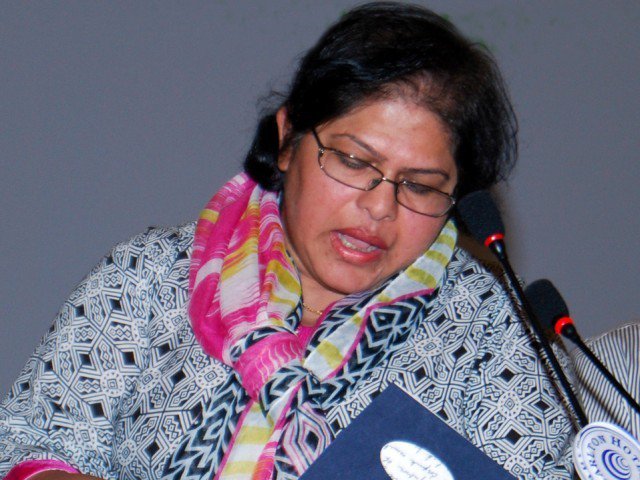
For scholar Dr Ayesha Siddiqa, author of Military Inc., confrontation or resistance will not serve interests of both the state and ethnic groups.
Hinting that assimilation in the mainstream appeared a better option, she believed, the process is already under way.
"In Sindh, I have seen people who prefer to join the armed forces or side with the military establishment rather than pursuing some form of resistance," she said. "They want to become a part of the larger project of which the people of Punjab and Khyber-Pakhtunkhwa are already a part."
Pakistan's unfinished war against extremism
Siddiqa was delivering a lecture on 'Religious Extremism and Sindh' and responding to questions of the participating civil society activists on Monday. The event was organised by Human Rights Commission of Pakistan in collaboration with Strengthening Participatory Organisation.
To corroborate her argument, she gave reference of recruitment of 80,000 soldiers from Sindh in the armed forces during General Pervez Musharraf's government.
But, simultaneously, she underlined the conceptually brutal aspect of the state. "[The] state as a concept is criminal."
To deal with this facet, Siddiqa accentuated on building people's capacity and ensuring their effective representation through socio-political movements. "If you do not have a strong [representative] movement, the state will smack you."
She also described the Seraiki province as a dream and its nationalist movement as a lie. "Seraiki identity does not exist."
The scholar accused the Pakistan Peoples Party (PPP) of robbing off the Seraiki people by giving them a spurious hope of a separate province by supporting a mere resolution in Parliament.
"But, the Seraikis soon understood this [PPP's] game and in the 2013 general elections, responded with by their mandate to Pakistan Muslim League-Nawaz."
Religious extremism
Siddiqa expressed concern that in absence of liberal and political alternatives, the growing middle class in Sindh's new urban centres is left with only the religion to follow as an ideology.
"In a meeting with [PPP leader] Asif Zardari in 2009, I told him about the speedy increase of madrassas in Sindh. But his response was insouciant."
She also held the intellectual class in Sindh responsible for the swift spread of religious influence. "Our [civil] society has become a victim of NGOisation," she claimed, adding that they always look for foreign funding before embarking upon any initiative.
The middle class wants to free itself from the tentacles of feudalism and pirs [spiritual leaders], she pointed out. But, she lamented an elusive liberal political narrative has paved the way for the religion's extremist strand in Sindh.
"Things are going out of control of the Barelvi and Sufi Islam because they lack narrative. The extremist religious groups, armed and backed by the state, have become insurmountable for pirs and sufis to resist."
Speaking about Karachi, she said in 1980s the military establishment seeded political violence in Karachi - a reference to creation of the Muttahida Qaumi Movement - to weaken the PPP.
"The scheme backfired and they realised that arranging a 'damad' (a person like Asif Zardari as husband for Benazir Bhutto) could have worked far better to achieve their objectives." By the 1990s the importance of Karachi as the only seaport and airport dawned on the establishment.
The author also spoke about Pakistan's external affairs including relations with India, China Pakistan Economic Corridor, Afghanistan and the ongoing Saudi-Iran standoff.
Published in The Express Tribune, January 6th, 2016.




1730959638-0/trump-(19)1730959638-0-165x106.webp)












COMMENTS (1)
Comments are moderated and generally will be posted if they are on-topic and not abusive.
For more information, please see our Comments FAQ